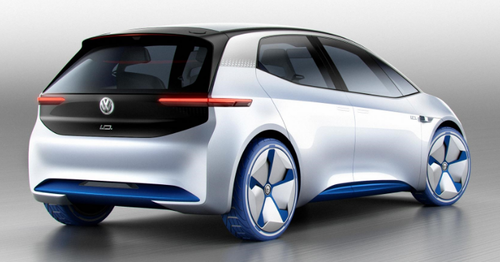Volkswagen CEO Says EV Margin Parity With ICE Vehicles Will Be Reached In “2 To 3 Years”
Ever since the forced adoption of EVs by governments worldwide, all eyes have been on when the electric vehicles would finally make economic sense to produce.
According to Volkswagen, that milestone is still years away, but is moving closer. CEO Herbert Diess said at the company’s annual general meeting this week that its EVs would see margins at the same level of combustion cars “in two to three years”.
The company also disclosed that its shift to EVs continues on schedule, as it delivered 170,939 all electric vehicles in the first half of the year. This number is twice as many vehicles as the company delivered last year, according to Bloomberg.
Diess also stressed that electric mobility is seen as the “only way” to significantly reduce CO2 emissions in road traffic over the next 10 years.
And the company is now also incentivizing its board and executives for its “green” initiatives: Volkswagen adopted a new management board remuneration system that “includes ESG targets”, Bloomberg commented.
Recall, back in March of this year, Volkswagen made its intentions of becoming a key player in EVs known, aspiring to compete with companies like Tesla.
At the time, the company laid out plans for expanding its EV offerings through 2030, which included dethroning Tesla as the reigning EV world champ. VW hosted its “Power Day” in Q1 and revealed plans to build six “gigafactories” with a total capacity of 240 gigawatt hours per year.
“The company is aiming to achieve an operating margin between 7% and 8% after 2021. VOW also confirmed it is looking to finish the year at the upper and of a 5% – 6.5% range in 2021. Higher profitability will be achieved through lower costs with as much as 2 billion euros savings identified for 2023 compared to 2020,” the company said in Q1, according to StreetInsider.
Chief Executive Herbert Diess said on CNBC at the time: “This period is probably the most crucial for the whole industry. Within the next 15 years we will see a total turnover of the industry. Electric cars are taking the lead and then software really becomes the core driver of the industry.”
“Electric cars already today are very, very competitive and they’re becoming more competitive over time. that gives us the certainty that this is the right way going forward. Electric cars actually will bring down the cost of individual mobility further,” he continued.
VW also disclosed at the time that it was working on a “new unified battery cell” to be launched in 2023. Diess said: “The one size fits almost all cell design will radically reduce battery costs … by up to 50% compared to today. Lower prices for batteries means more affordable cars, which makes electric vehicles more attractive for customers.”
Tyler Durden
Fri, 07/23/2021 – 02:45
via ZeroHedge News https://ift.tt/3rrLLXc Tyler Durden
